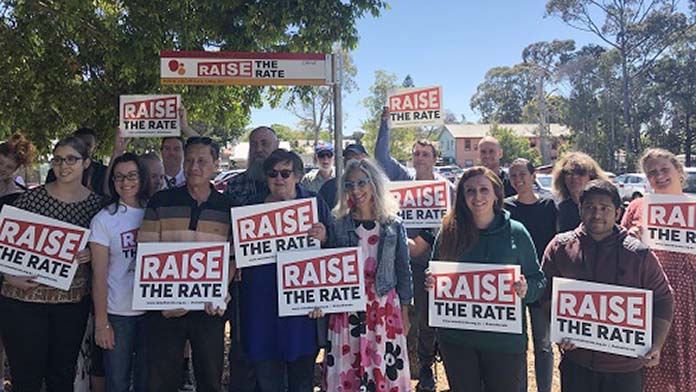Anthony Albanese and Treasurer Jim Chalmers are hosing down hopes of any serious action on cost of living, health or aged care in the upcoming budget.
Inflation is still at 7 per cent, with the price of essentials like bread and electricity rising even faster. More interest rate rises are likely after the pause in April.
People on welfare are being pushed even further into poverty. The government’s economic inclusion committee has slammed JobSeeker payments as “seriously inadequate” saying they force people “to choose between paying for their medicine or electricity bills”.
It called for an increase to JobSeeker of 25 per cent, costing $24 billion over four years. But Chalmers dismissed the call, saying “we can’t do everything” and pointing to “pressures” on the budget. He has hinted at only minor cost of living relief in the budget this month.
At the same time Labor has restated intentions to keep the Stage Three tax cuts for the rich, costing $254 billion over ten years.
That’s $17.7 billion in their first year alone—enough to pay for the increase to JobSeeker three times over.
Labor is also taking a very different line when it comes to military spending. The appalling $368 billion for nuclear submarines is just the worst part of an outrageous spending spree.
Recent months have seen contracts announced for 20 HIMARS missile systems costing $545 million, and 220 Tomahawk cruise missiles for $1.3 billion.
Labor pretends that the military is doing it tough too, pointing to reductions in spending on infantry fighting vehicles and howitzers. But overall defence spending is still surging. The Defence Strategic Review calculated that an extra $42 billion in arms spending has been committed since 2020 without budgeting for it.
Instead of military spending and tax cuts for the rich, Labor should be tackling the urgent needs in health, the NDIS and aged care.
Three Wesley Mission aged care homes in Sydney announced their closure in April, citing staff shortages. The government has reluctantly funded a 15 per cent wage rise ordered by the Fair Work Commission from July. But privatisation has created a basket case, with 66 per cent of providers running at a loss. Aged care should be nationalised and given the funding it needs.
Health services are also in crisis following the pandemic. An AMA report in January detailed increased ambulance ramping outside hospitals, emergency departments beyond capacity and workforce shortages.
It wants the extra funding that hospitals received during COVID restored, costing $5 billion a year.
Running the system
Peter Dutton’s support, never high in the first place, has crashed to a record low following his decision to campaign against an Indigenous Voice to parliament.
The Liberals are marginalising themselves through reactionary right-wing positions on issues from the Voice to climate action and transphobia.
But instead of seizing the opening for change, Anthony Albanese and Labor are determined to do the bidding of the rich and powerful. They have locked in enormous levels of military spending while insisting that public services come second.
There is growing anger at the spending on AUKUS nuclear submarines across the union movement and within the Labor Party.
Foreign Minister Penny Wong tried to justify the plan in a speech to the National Press Club, saying it was about “creating deterrence” against China launching a war, while declaring the US “the indispensable power” for the Asia-Pacific region.
But the US is no force for peace and democracy. It is waging a ruthless struggle to stop China threatening its dominance of high tech industries through trade sanctions and threats, while reinforcing military alliances and a string of bases encircling it.
Australia’s military buildup is ratcheting up the tensions and increasing the threat of war. Penny Wong bluntly admitted that Australia was involved in a competitive game in the region “to shape and influence it to advance our national and shared interests” alongside the US.
Unions in Wollongong are campaigning against plans for an East Coast submarine base in Port Kembla, with the May Day march on 6 May focused on opposition to the plan. Unionists in Sydney will travel down to join them.
A protest is also planned in Sydney on 23 May when US President Joe Biden and other world leaders visit for the Quad meeting.
The CFMEU held a national stopwork rally on 5 April, calling for cost of living pay rises for workers as the union heads into bargaining in NSW and Victoria. Construction and port workers will also stop work to march on 1 May in Sydney.
More strikes and protests are needed to push up wages in the face of the cost of living crisis, and to fight Labor’s addiction to militarism and rule for the rich.






